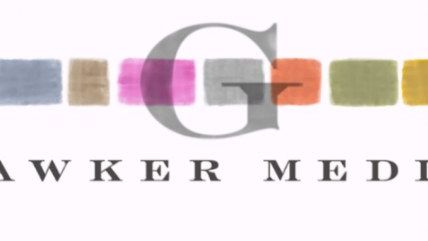


Gawker was ordered to pay $140 million in damages to former wrestling entertainer Hulk Hogan - whose real name is Terry Bollea - for publishing a sex tape involving him. The company will enter Chapter 11 bankruptcy after a judge denied its request to delay his order in the invasion-of-privacy lawsuit until it could appeal the ruling. But they can’t do it if we don’t let them.Gawker Media, pressured by a $140 million judgment in a lawsuit, filed for bankruptcy protection Friday and plans to put itself up for sale, according to multiple reports. “That is the kind of clear moral line that Gawker and publishers like it have sought to blur. “We can begin on solid ground by acknowledging that it is wrong to expose people’s most intimate moments for no good reason,” he wrote. He called for a bill against revenge porn that would make it criminal to distribute explicit images without consent, calling it “a step in the right direction”. Thiel repeated this denunciation of “fake culture wars” in his op-ed, and as with his convention speech emphasized his belief that “gay pride shouldn’t be a partisan issue”. But fake culture wars only distract us from our economic decline.”
#GAWKER MEDIA BANKRUPT FREE#
On Sunday Trump complained about the free press, tweeting: “It is not ‘freedom of the press’ when newspapers and others are allowed to say and write whatever they want even if it is completely false!”Īt the Republican National Convention last month Thiel spoke on behalf of Trump but added: “I don’t pretend to agree with every plank in our party’s platform. But the suit prompted broad concern: two Republican senators have called for more oversight of third-party funding, and some editors have aired fears about future activism, especially in the context of Thiel’s support for Republican nominee Donald Trump, who has repeatedly called for looser libel laws and sued at least one journalist whose work he dislikes. Thiel’s foray into the courts has raised fears in newsrooms about a chilling effect of money in the legal system, though legal experts say the case is unusual and plaintiffs still shoulder the burden of proof. “As a public figure, the best defense to speech that you don’t like is to develop a thick skin.” “Is that really how you want to spend your time?” he asked. Amazon billionaire Jeff Bezos, who bought the Washington Post in 2013, scolded Thiel in June, saying: “Seek revenge and you should dig two graves, one for yourself.” The billionaire investor, who has reaped a fortune through companies such as PayPal and Facebook, has drawn criticism from his peers in the tech industry. The press is too important to let its role be undermined by those who would search for clicks at the cost of the profession’s reputation.” “It’s not for me to draw the line, but journalists should condemn those who willfully cross it. “Since sensitive information can sometimes be publicly relevant, exercising judgment is always part of the journalist’s profession. “A free press is vital for public debate,” he wrote. Thiel did not mention any other suits in his op-ed and argued that his efforts to punish the site were in fact meant to defend journalism. “It’s safe to say this is not the only one,” he told the Times in an interview, adding that his crusade against Gawker was “less about revenge and more about specific deterrence”. In May, Thiel revealed that he was secretly funding Bollea’s case and said that he has financed other lawsuits, raising fears about the influence of wealthy third-party interests in cases regarding the press. Gawker has defended itself in court by arguing that Bollea’s personal life was of public interest because of his celebrity, but a jury unanimously rejected this and found that the site had violated his privacy. He noted that Gawker later outed another businessman, though it eventually retracted the article, and that the site published a sex tape of Bollea without consent.

“It seemed only a matter of time before they would try to pretend that journalism justified the very worst,” Thiel wrote. In 2007 the site outed Thiel as gay, which he said was “minor in comparison with the cruelties that could be inflicted by someone willing to exploit the internet without moral limits”. In an op-ed published by the New York Times on Monday, Thiel justified his support for Bollea by saying that Gawker had repeatedly violated people’s privacy, including his own.


 0 kommentar(er)
0 kommentar(er)
